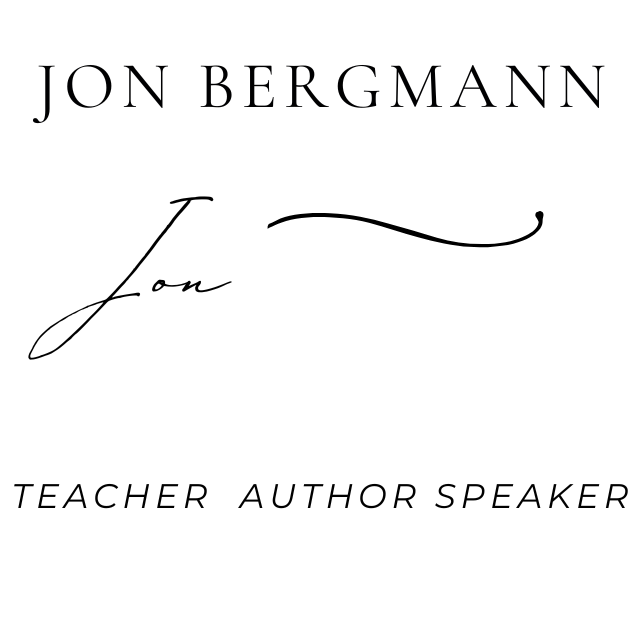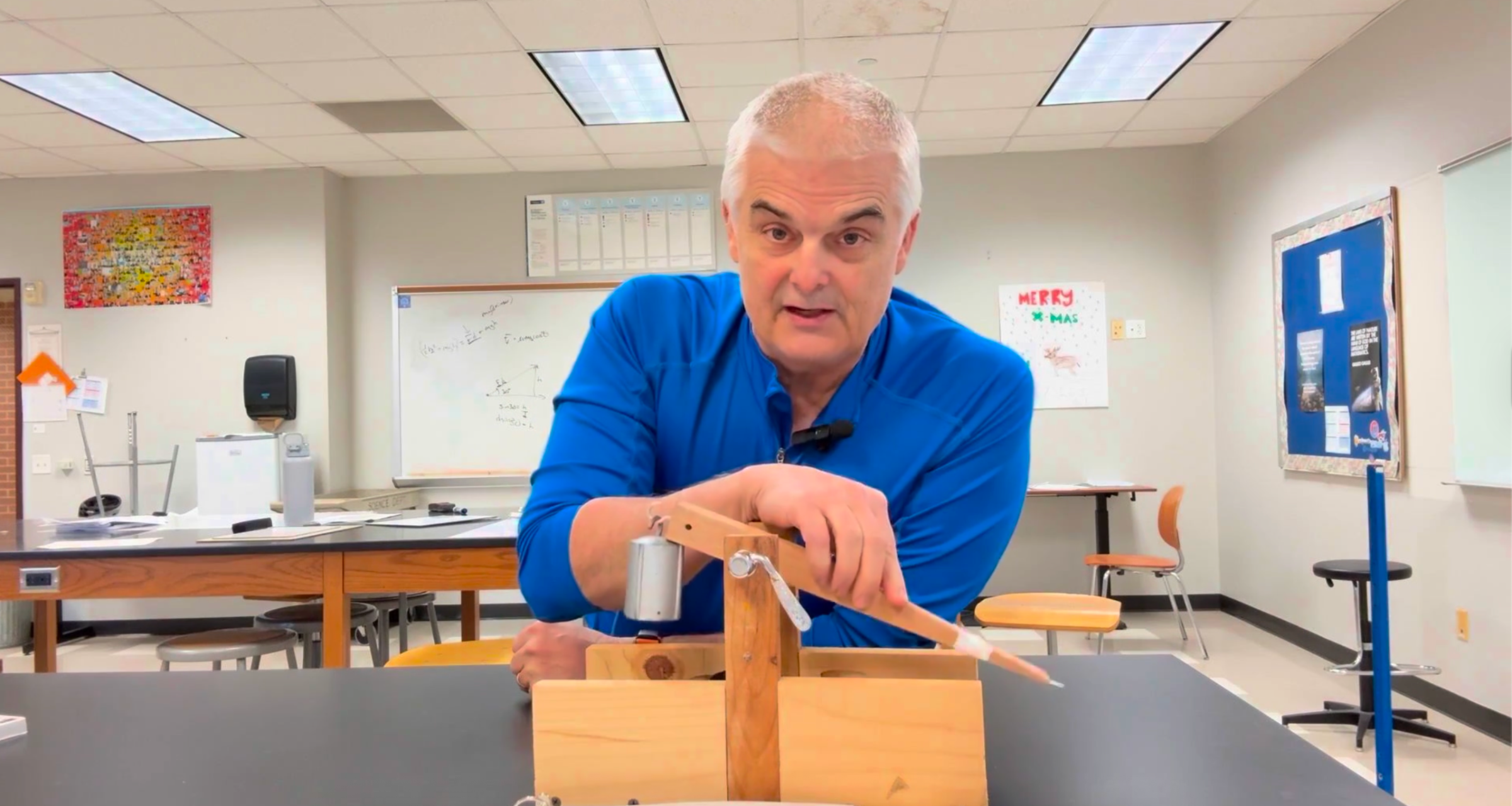Untitled - November 14, 2025
00:00:00 Speaker: Will AI fundamentally change our humanity? I hope not.
00:00:10 Speaker: Welcome to the Reach Every Student podcast with me, your host, Jon Bergmann. Recently I was reading an email or a newsletter thing from Steven Borchard. I think it's pronounced his name. And he got me thinking. He said some things that really made sense to me about education and AI, but then he kind of went on a tack that got me going. Wait wait wait wait wait. Pause pause, pause. He said, we're redefining civilization. And then he took a tack that made me really go down a rabbit hole. And I've been in this rabbit hole all week, basically. And he finds a quote from OpenAI team, that's Sam Altman. I don't think this was Sam necessarily, but and this is his quote, we expect to have systems that can do tasks that can take a person days or weeks soon. We do not know how to think about systems that can do tasks that would take a person centuries. In twenty twenty six. That's next year. We expect AI to be capable of making very small discoveries in twenty twenty eight and beyond. We're pretty confident we'll have systems that can make more significant discoveries. And then he goes on to say. That it's going to redefine civilization. And I began to think about that, redefine civilization that that has me concerned. So I started looking for other thoughts and quotes. And Sam Altman himself said that we, in light of AI, need to start thinking of a new social contract and redefine basically what it means to be a human. And so I've been going down this route. I thought, wait, I am uncomfortable with redefining what it means to be a human, and maybe I'm overstating where these guys are. I'm going to call them the tech bros. Those, you know, the Musk and the Altman and Zuckerberg and all the big tech, leaders who are building these systems. And I began to think about what are they saying and what is their underlying. I think it comes back to something that's near and dear to me, and that is their world view. I began to just say, what's going on with this? And I asked AI to help me with this. So. And but it rings true to me that many of the AI thinkers, the leading thinkers, they emphasize, hear me, human self-definition. So if we're redefining what it means to be human, there's this idea that we as biological humans want to have this place of autonomy, right? That I am, I get to choose everything about myself. I get to define who I am. I get to define how I live. It's it's very a self-autonomy kind of a worldview. And that flies in the face of the worldview that I come from. I guess for me, who I Western civilization was founded on, on the Judeo-Christian worldview and Judeo-Christian worldview actually comes into face of all of this, because in the Judeo-Christian worldview, it doesn't say that you get to define yourself. It says that the creator gets to define you. And this is a clash of worldviews. And if you think this, this, this hyper, self-autonomy that I get to pick everything in my life, if that is where you're coming from, then I think when we look at AI, they're seeing AI as a way to shape and highlight your self autonomy. But if you look at the Judeo-Christian worldview, it says, no, an external creator has defined what it means to be human. And to the degree that a human, a person, or even a culture lives in alignment with how they were made. They will thrive. And if they live in discordance with how they were created, then they will not thrive. And I think that's what we're getting to is that, I mean, if we look at what's happened in the last decade, a couple of decades with social media, if there's anything that social media has done, it has made the self the center right. I mean, all the Instagram models and the influencers and it's become hedonistic and you are the center of the universe. And can I say this, guys, it hasn't really worked out for us. It has not caused great human thriving. It's caused a lot of human suffering. And so I'm just again, this is my thinking in my infancy stage about this. I'm starting to write about this and my thoughts are jumbled, as you can probably hear from me talking about this right now is that we, we as a society are at a civilizational clash, right? We are. We have, the old worldview that our civilization was founded on Western culture that says, that there's a creator who has defined who we are, and now we say no in this extreme self-autonomy, I'm going to define myself, and I'm going to use tech AI in particular in this, in this stage of our development to help define me. and it's going to change how I live. and I think we are at a civilizational moment where we have to make a choice between which culture we want to follow. And I guess I'm going to say this I think the foundation of Western civilization is where we need to go back to. I think The extreme self-autonomy the results are in, they haven't worked. And I believe in the veracity of the Judeo-Christian worldview that says that that's actually what's actually true. Or I'll use a big fancy word. That's what's ontologically true. Ontology is the study of how we are made. I mean, it's this sense, the idea a big fancy word is, you know, a hammer is designed to do something right to to push a nail into a piece of wood It has a very specific task. And if it's misused, it could be it's it's not good for the world, right? I mean, it could be used as a weapon. It could be used for other things. And it's not a very good screwdriver if you use it as a screwdriver and like the tip, it's not going to do a very good job at it. Sometimes you can make the hammer do other things. And if we humans were designed to live in alignment with, I would say, reality with the reality that was developed by the creator, then that's how we will thrive. So I don't know, I'm totally in and this is somehow intersects with AI, but it's something I've been thinking about and I've gone down this rabbit hole. I found some interesting quotes that got me thinking about this. Let me find them here. Here's a quote. We stand at the threshold of perhaps the most profound identity crisis humanity has ever faced. This transformation is unfolding now, reshaping not just our economy, but our very understanding of what it means to be human beings. From an article on the internet. and here's more of a positive one. We've been redefining what it means to be human over the past sixty years. As a mechanical processes have replaced behaviors and talents we thought were unique to humans, we've had to change our minds about what sets us apart. The greatest benefit of the arrival of AI is that AI will help define humanity. We need AI to tell us who we are. These are scary quotes to me. we shape our tools. This is Marshall McLuhan. We shape our tools, and therefore our tools shape us. Stephen Hawking, many years ago, the development of full artificial intelligence could spell the end of the human race Humans are limited by slow biological evolution and couldn't compete and would and we would be superseded by the AI. I just think we're we're at this stage where we need to be very cautious about letting AI overtake our humanity. There is something ontologically true about us as humans, about what makes us human, and we need to hold on to that with a great tenacity. I mean, even this this morning, as I was, I get up and I have a devotional time and I felt the pull to jump into my phone and it's like, no, I need to. I need to spend time meditating and and praying and connecting because there is there we're staring at screens. I am too, in a way that is unhealthy for us, and we need to fight that because we've lost our humanity. In some ways, we've given it over to the machines. I still think there's a lot of value in AI. I'm not I'm not an anti AI guy. Okay. Hear me carefully. I see that AI can help us. I mean, I used AI to ask questions about AI. Very meta there. And help me to find some of these quotes. And it's it's a great augment to my thinking to help me kind of explore new things. But at the same time, I need to tenaciously hold on to my humanity and what it means ontologically in reality, to be a human. So these thoughts are just at their infancy, and I hope you find this helpful.
00:09:43 Speaker: if you like this podcast, this very disjointed one or the other ones, I encourage you to click subscribe. Hey, go out now and reach every student. Jon Bergmannn out.

